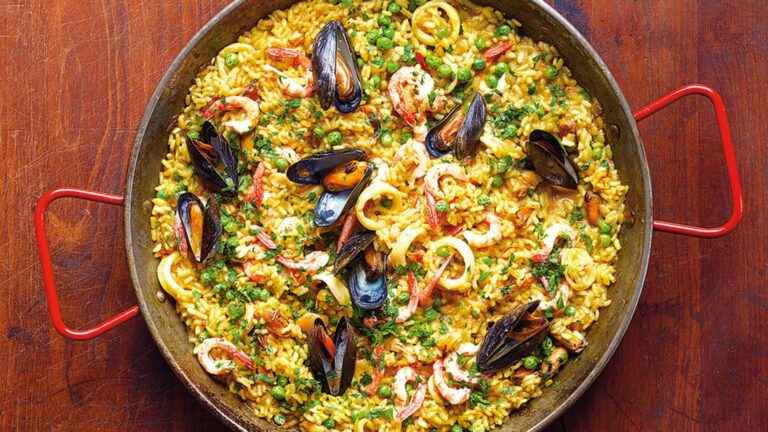Introduction: The Basics of Spanish Cuisine
Spanish cuisine is a diverse and vibrant fusion of flavors and ingredients, influenced by the country’s rich history, geography, and cultural traditions. Its signature dishes, such as paella, tortilla de patatas, and gazpacho, are well-known around the world, but there is much more to explore in Spanish gastronomy. From seafood to meat, from soups to stews, Spanish cuisine offers a wide range of options for food lovers.
Dietary Restrictions in Spanish Cuisine
Like any other cuisine, Spanish cuisine may pose some challenges for people with dietary restrictions, such as allergies, intolerances, or ethical choices. However, with some awareness and planning, it is possible to enjoy Spanish food while respecting one’s dietary needs. Some of the common dietary restrictions in Spanish cuisine include:
Vegetarian and Vegan Options in Spanish Cuisine
Vegetarian and vegan options are becoming more widespread in Spanish cuisine, especially in big cities and tourist areas. While meat and fish are traditionally important in Spanish cuisine, many dishes can be easily adapted by substituting the animal-based ingredients with plant-based alternatives. For example, instead of using meat in a fabada (a bean stew from Asturias), one can use tofu or seitan. Some vegetarian and vegan dishes that are worth trying in Spanish cuisine include patatas bravas, escalivada, and pisto.
Gluten-Free Options in Spanish Cuisine
Gluten-free options are becoming easier to find in Spanish cuisine, as awareness of celiac disease and gluten sensitivity increases. Some traditional Spanish dishes that are naturally gluten-free include salmorejo, roasted vegetables, and seafood paella. However, some dishes may contain hidden sources of gluten, such as breadcrumbs or wheat flour. It is important to ask the server or chef about the ingredients and preparation methods before ordering.
Halal and Kosher Options in Spanish Cuisine
Halal and Kosher options may be more challenging to find in Spanish cuisine, as pork and other non-Halal or non-Kosher ingredients are widely used. However, some restaurants and markets in Spain cater to these dietary restrictions, especially in areas with a significant Muslim or Jewish population. Some Halal and Kosher dishes that can be found in Spanish cuisine include lamb skewers, couscous, and stuffed grape leaves.
Conclusion: Enjoying Spanish Cuisine with Dietary Restrictions
In conclusion, Spanish cuisine offers a rich and diverse culinary experience, but it may require some awareness and planning for people with dietary restrictions. Vegetarian, vegan, gluten-free, Halal, and Kosher options are available in Spanish cuisine, although they may not be as widespread as traditional dishes. It is important to communicate with the server or chef about one’s dietary needs and to research the ingredients and preparation methods before trying a new dish. With some flexibility and creativity, Spanish cuisine can be enjoyed by everyone, regardless of their dietary restrictions.

